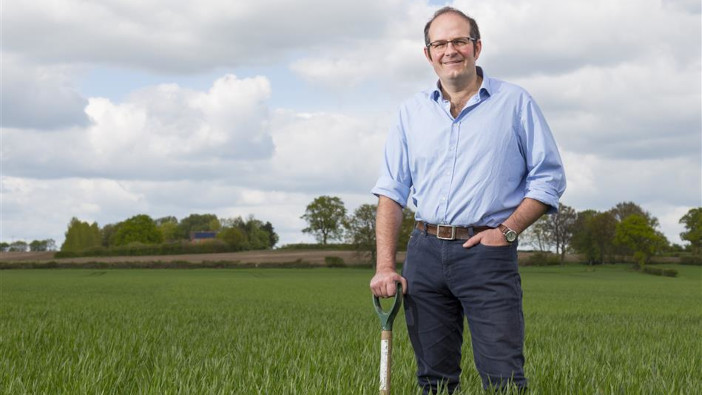According to figures calculated by Defra, today (August 14) would be the day that UK food stocks ran out if we only ate food produced here from January 1st.
To mark this, the NFU is highlighting the importance of upholding and increasing self-sufficiency levels to bolster food security.
The Defra figures show that the UK is 62% self-sufficient. This is similar to past decades, although key sectors have seen a recent decline, including fresh vegetables which are currently at the lowest level since records began in 1988 at just 53%.
Following one of the worst seasons on record due to the adverse weather conditions, the area of cereals in the UK sown was down dramatically, and farmer confidence is low.
At the same time, record-breaking global temperatures have impacted key export nations. Tomato imports from Spain and Morocco fell by 17% in February 2023 compared to the five-year average. In the same period, imports of lettuce varieties fell by more than 36%5, contributing to shortages on shop shelves as UK production also fell.
NFU president Tom Bradshaw said: “Food from other countries will always form a proportion of our daily diets, but we must recognise the vulnerability of global food supply chains and the importance of a stable food supply here at home to our nation’s health, as well as its vital contribution to our economy. Farmers produce the raw ingredients that underpin our food and drink sector, the largest manufacturing sector in the UK, worth £146 billion and employing more than four million people.
“That is why investment in Britain’s farming sector is so important, so where we can increase self-sufficiency in homegrown foods, we do.
“Think about the impact of the climate crisis right across the world. Blistering temperatures have caused issues with harvests across Europe, while here in the UK many farms spent the first few months of this year under water. At the same time, our farmers continue to face significant reductions in direct farm support payments and unsustainably high production costs due to the war in Ukraine6.
“All of this chips away at business confidence and farmers’ ability to do what they do best – produce high quality, nutritious food for the nation. And with nearly a fifth of UK households reporting experiences of moderate or severe food insecurity in January 20237, we can’t afford to let this trend take hold.
“That’s why we welcome the government’s recognition that food security is critical to national security. If we are to maintain, and where possible grow, our self-sufficiency in the face of global instability, food producing businesses need the right policy framework and investment to boost confidence and resilience so we can withstand climate and economic shocks.
“Central to this is an increased multi-year agriculture budget and a statutory commitment to ensure the UK’s self-sufficiency does not drop below its current level.
“On this Self-sufficiency Day, we want to highlight the importance of boosting Britain’s ability to produce its own food so families across the country continue to have access to healthy, balanced and affordable meals – something we all have a right to.”
The NFU is highlighting ways the government can ensure self-sufficiency doesn’t drop in the future. These include:
- An increased multi-year agriculture budget for the duration of this Parliament, as was the case in the previous Parliament.
- Ensure all new policies and regulations that impact agricultural and horticultural businesses undergo a food security impact assessment.
- Introduce a statutory commitment to ensure the UK’s self-sufficiency does not drop below its current level.
- Ensure food imports are produced to the same standards as those that British farmers are required to meet by introducing a system of core standards for animal welfare and environmental impact.
- A seamless transition to new environmental schemes that are open to all farmers and growers.
- Deliver manifesto commitment of introducing a target for half of all food purchased across the public sector to be locally produced or certified to higher environmental standards.
- Update the National Planning Policy Framework (NPPF) to include a weighted argument in favour of food production, with the benefits of farming clearly recognised by the planning system to support food production across England.
- Supporting growth in the UK horticulture sector as outlined in the NFU’s Horticulture Strategy, developing policies around access to labour, crop protection, water, planning, and affordable and sustainable energy supply.


